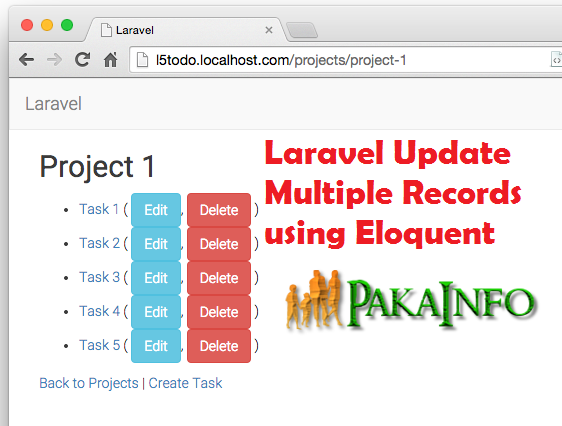
Return redirect()->route('users. Session()->flash('error', 'Something went wrong!') Session()->flash('success', 'User successfully created!') $user = User::where('name', $username)->first() In addition, the Illuminate\Database\Eloquent\Collection class provides a superset of methods to aid with managing your model collections. Without firstOrCreate() validate($request,[ All Eloquent collections extend the base Laravel collection object therefore, they inherit all of the powerful methods provided by the base collection class. we will show you simple examples, without firstOrCreate() and with firstOrCreate() example. we can learn easily to use eloquent firstorcreate examples in Laravel.įirstOrCreate() eloquent method to find the record in a database table and returns, if there are no records in the database table then it will create a new record and return. we will learn the Laravel model firstorcreate eloquent. * The attributes that are mass assignable.Today we will learn about Laravel’s eloquent firstOrCreate example. This technique requires Mass Assignment to be set up, either using the fillable or guarded properties to dictate which fields may be passed into the create call.įor this example the following would work (as a property of the User class): /** This returns the User for the specified email if found, otherwise creates and returns a new user with the combined array of email, firstName, and lastName. If the model cannot be found in the database, a record will be inserted with the attributes resulting from merging the first array argument with the optional second array argument. I Know I can achieve this using laravel collection map and group by ,but I prefer using a single query. 10 When I try the firstOrCreate () on a relationship of another model, it does not work: Client::find (id)->users ()->firstOrCreate (array ('email' > email)) This returns an error saying Call to undefined method Illuminate\Database\Query\Builder::firstOrCreate () Running this directly on the model User will work though. The firstOrCreate method will attempt to locate a database record using the given column / value pairs. I want to find the total sells of Individual Product and then sum sells of each product while fetching categories.


It's explained in the documentation as follows:

Laravel eloquent find or create code#
If you can just use the arguments to immediately create a new model instance in the database without modifying it, you can use firstOrCreate().Īs of Laravel 5.3 it's possible to do this in one step with firstOrCreate using a second optional values parameter used only if a new record is created, and not for the initial search. 3 Answers Sorted by: 97 Your code looks fine, but there are a couple of things to be aware of: Post::find (id) acts upon the primary key, if you have set your primary key in your model to something other than id by doing: protected primaryKey 'slug' then find will search by that key instead. setting a name or some mandatory field), you should use firstOrNew(). If you want to modify the model instance before it is saved for the first time (e.g. Otherwise it will give you the matched item.Ĭhoosing between one or the other depends on what you want to do. firstOrNew() will give you a new model instance to work with if not match was found, but will only be saved to the database when you explicitly do so (calling save() on the model).Otherwise it will give you the matched item. firstOrCreate() will automatically create a new entry in the database if there is not match found.If you are using Eloquent models, you can. The difference between firstOrCreate() and firstOrNew(): You can use the whereIn method on a query builder instance to create an IN clause for a given column and values. This will return the first item that matches, or create a new one if not matches are found.

If you only want to check on a specific field, then use firstOrCreate() with only one item in the array. If not all arguments match, then a new instance of the model will be created. FirstOrCreate() checks for all the arguments to be present before it finds a match.


 0 kommentar(er)
0 kommentar(er)
